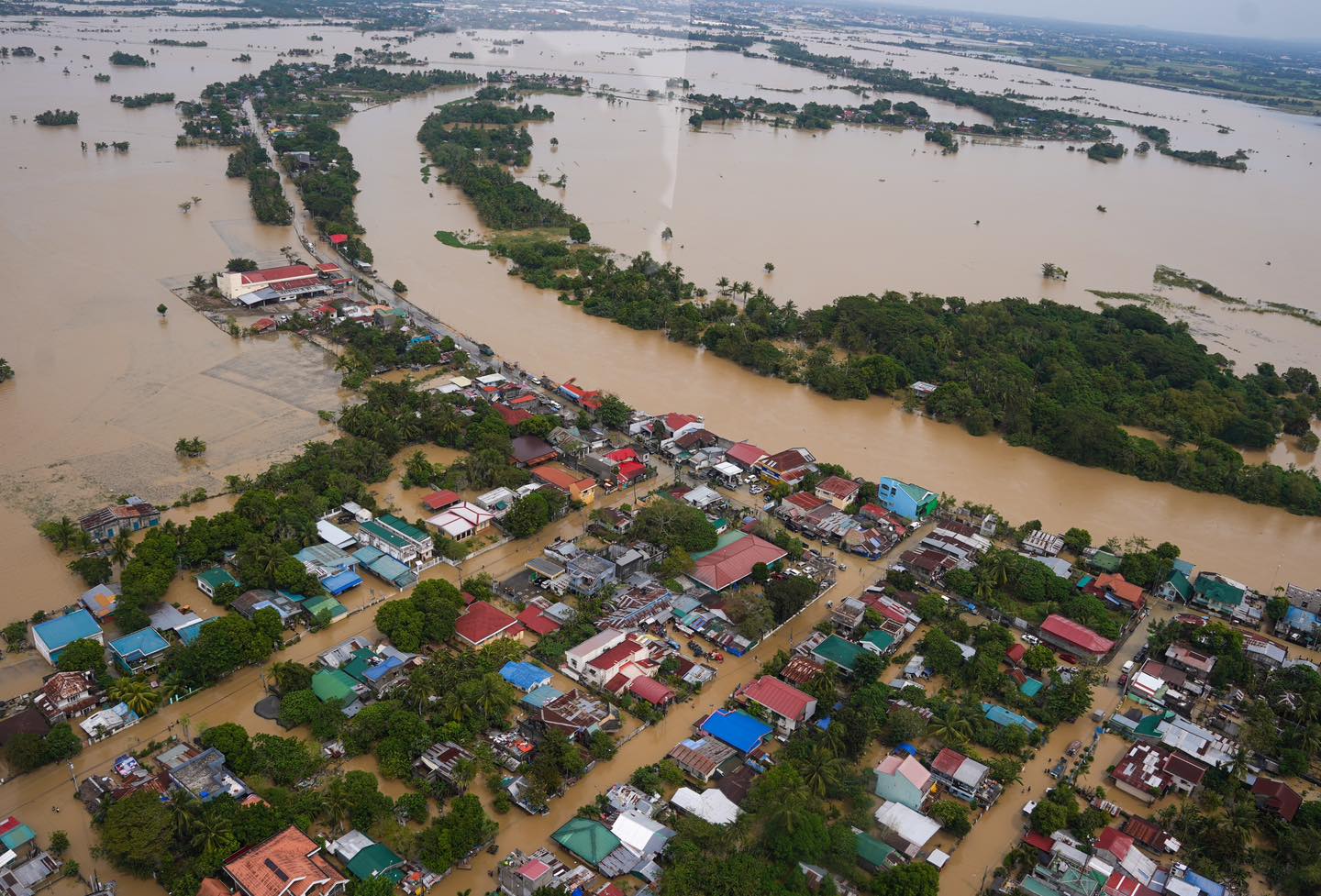'Disaster-prone country': Yamsuan makes case for mandatory environmental insurance coverage for local projects
At A Glance
- Ako Bicol Party-list Rep. Brian Raymund Yamsuan is prodding his House colleagues to swiftly pass legislation that aims to mandate owners and operators of "environmentally critical" projects to secure the appropriate insurance coverage.
 Photo shows flooded areas in Naga City, Camarines Sur due to Severe Tropical Storm "Kristine" during an aerial survey conducted by the Armed Forces of the Philippines (AFP) on Oct. 28, 2024. (Photo: AFP)
Photo shows flooded areas in Naga City, Camarines Sur due to Severe Tropical Storm "Kristine" during an aerial survey conducted by the Armed Forces of the Philippines (AFP) on Oct. 28, 2024. (Photo: AFP)
A neophyte solon in the 19th Congress is prodding his House colleagues to swiftly pass legislation that aims to mandate owners and operators of ”environmentally critical” projects to secure the appropriate insurance coverage.
Ako Bicol Party-list Rep. Brian Raymund Yamsuan says doing so would guarantee sufficient compensation for the possible adverse impact of their operations on affected communities.
Penned by Yamsuan, House Bill (HB) No.1937 provides for the mandatory environmental insurance coverage (MEIC) that institutions and corporations should obtain before they are allowed to start construction or commercial operations of their projects.
Yamsuan said that under the measure, environmentally critical projects are, among others, activities like quarrying, logging, reclamation, mining, major infrastructure projects, and those constructed in areas frequently visited or hard-hit by natural calamities such as floods, typhoons and volcanic activity.
“Our country is the most disaster-prone in Southeast Asia. But we cannot ignore the fact that the calamities we are experiencing now are also due to man-made activities that damage the environment," he said in justifying his bill.
"Despite these realities, there is still no action or policy to ensure adequate compensation for losses resulting from these activities that lead to environmental degradation and cause harm to lives and property. This bill aims to fill this gap,” said Yamsuan.
“Our ultimate goal is accountability for institutions and corporations that embark on environmentally critical projects. We want to make sure that they operate as responsible owners to help prevent man-made disasters. If environmental damages do occur, then the MEIC will ensure that communities are properly compensated and rehabilitation programs are immediately implemented,” he explained.
Yamsuan said the bill complements a recently approved measure of the House of Representatives—HB No.11093—which aims to institutionalize environmental assessments in all policies, plans, programs and projects.
HB No.11093 establishes a Philippine Environmental Assessment System (EAS), where critical projects such as heavy industrial activities, major infrastructure and resource extraction will be required to secure a Certificate of Proponent’s Environmental Commitment (CPEC) from the Department of Environment and Natural Resources (DENR).
To strengthen the proposed EAS, Yamsuan said HB No.1937 sets up the MEIC in the form of an environmental guarantee cash fund or an environmental insurance policy (EIP) obtained from bonding or insurance companies, in cases when the former is insufficient to cover the costs of the adverse consequences.
Among the beneficiaries of the MEIC cited under the bill are the affected communities, stakeholders, and the local government units (LGUs) within the primary impact areas of the environmentally critical projects.
Government agencies tasked under the law to undertake the rehabilitation, clean-up and monitoring of the affected sites---where no responsible public or private entity is specified--are also included as MEIC beneficiaries.
An Inter-Agency Technical Committee chaired by the secretary of the Department of Environment and Natural Resources (DENR) shall be established to implement the bill’s provisions. The commissioner of the Insurance Commission, representatives from the insurance industry, mining sector and other stakeholders that the DENR may deem fit will sit as members of the committee.
Failure by owners and operators to secure an MEIC for environmentally critical projects is punishable under the bill with fines ranging from P500,000 to P2 million or imprisonment of six to 12 years, or both, depending on the court’s discretion.
Government officials and employees who approve the construction of such projects without the necessary MEIC face the penalty of being suspended from 30 days to six months.